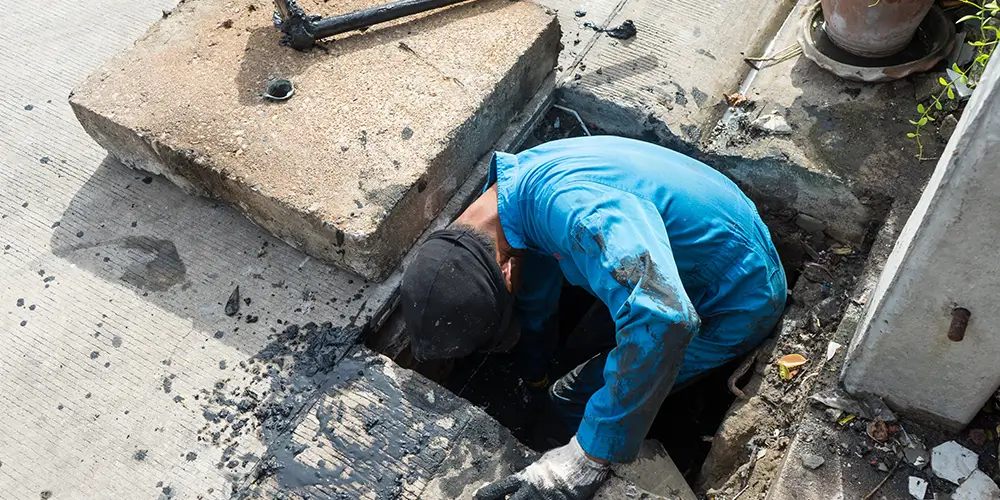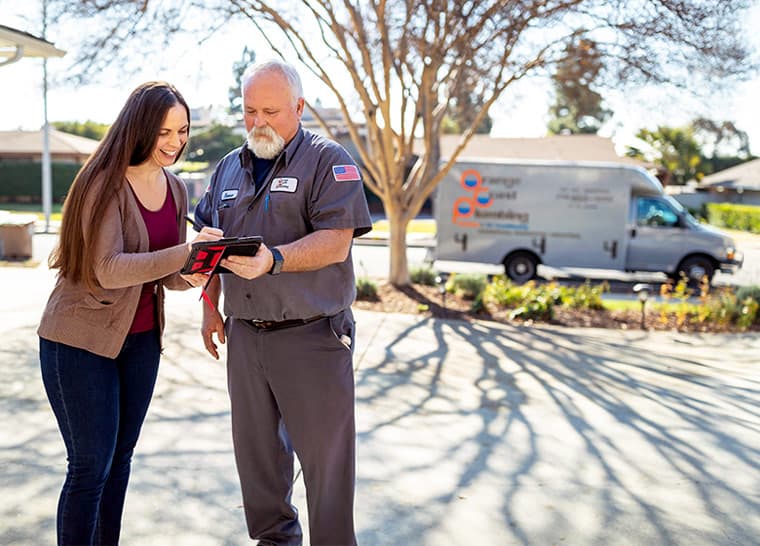Plumbing leaks are a nuisance, usually causing minor damage.
But slab leaks are a different beast — they’re almost certain to cause significant damage, in which case you’ll need your insurance to help with an expensive and extensive repair.
This begs the question: will your homeowner’s insurance cover slab leak damage?
The answer is: “It depends.” It depends on your policy and the insurance company covering that policy.
Understanding Your Policy
Homeowners’ insurance policies cover physical losses that result from sudden and accidental damage. However, insurance companies can be selective about the kinds of sudden and accidental damage they cover.
Some companies will only cover losses from specifically named perils.
These are events or situations explicitly listed in your policy, such as fire, windstorm, and vandalism. If a slab leak isn’t expressly mentioned in your policy’s list of named perils, it may not be covered.
This is why it’s essential to carefully read and understand the details of your policy before filing a claim for slab leak repair. Review any exclusions or limitations listed in your policy as well.
Factors That Can Affect Coverage
Aside from the specific wording of your policy, other factors can affect whether homeowner’s insurance covers slab leaks:
- Age and Condition of a Home: If your home is old or poorly maintained, the insurance company may argue that the slab leak wasn’t a sudden or accidental event but a result of wear and tear.
- Location: Some areas are prone to certain types of plumbing issues, such as clay soil causing pipes to crack. Insurance companies are more likely to deny coverage in these cases, citing an existing risk.
- Negligence: The insurance company may deny coverage if you fail to address minor plumbing issues before they escalate.
- Additional Coverage: Depending on your policy, you may have the option to add coverage for situations not included in your standard policy. This could include coverage for slab leaks, so it’s critical to understand your options when purchasing homeowner’s insurance.
Breaking Down the Wording
- Physical Loss: A physical loss means that something is damaged to the point of needing repair or replacement. The policy may cover only “significant repairs.” What’s significant? The insurance company usually decides.
- Sudden and Accidental: A leak that causes damage slowly over time could be denied coverage, while one from a burst pipe may qualify.
- Damage: This includes the cost of repairing the leak and any damage caused by it, such as mold or structural damage.
Steps to Take If You Have a Slab Leak
- Document the Damage: Take photos and videos of the damage caused by the slab leak. This will support your claim with the insurance company.
- Call Your Insurance Company: Contact your insurance company immediately to report the slab leak. They may ask for additional information or send a claims adjuster to assess the damage.
- Get Multiple Estimates: Get quotes from multiple contractors for the repair costs. This will help ensure you get a fair payout from your insurance company.
- Request Coverage in Writing: If your claim is denied, request a written explanation from your insurance company detailing why they deny coverage.
- Consider Appealing the Decision: If you believe your claim was wrongly denied, you can appeal the decision with supporting evidence and documentation.
If You Notice Signs of a Slab Leak, Don’t Wait!
Act immediately at the first sign of a slab leak. Contact a plumber to pinpoint the leak and repair it.
Signs of a slab leak include:
- Puddles of water on the floor
- Warped flooring
- Damp carpeting
- Warped baseboards
- “Hot spots” on the floor (from hot water leaks)
- An unexplained loss of water pressure
- Unexpectedly high water bills
FAQs: Slab Leaks & Insurance
Q: What are the common signs of a slab leak?
These include the sound of running water when no fixtures are being used, water stains on floors or walls, an unexplained increase in your water bill, damp or warm spots on the floor, and mold or mildew.
Q: How can I prevent slab leaks?
Maintain your plumbing system, monitor for leaks or signs of excessive moisture, insulate pipes in areas prone to freezing, and ensure proper drainage around your foundation.
Q: Will my homeowner’s insurance cover mold damage caused by a slab leak?
That depends on your policy. If the mold directly results from a covered peril, such as a sudden slab leak, it may be covered, but many policies contain exclusions for mold damage.
Q: How do I file a claim for slab leak damage?
Report the slab leak to your insurance company as soon as possible. Photograph the damage, obtain a plumber’s report, and provide all necessary documentation as specified in your policy.
Q: What if I discover a slab leak after a significant time has passed?
If a slab leak has been present for an extended period, your insurance may deny coverage based on the premise of gradual damage. It’s crucial to report leaks as soon as they’re detected to ensure the best chance of coverage.
Q: Are there special policies for older homes?
Some insurance companies offer policies specifically for older homes, taking into account their unique risks. Please discuss these options with your insurance agent and review the specifics of your builder’s risk and homeowners’ policies.
Q: Can I negotiate my insurance payout for slab leak repairs?
Yes. Estimates from qualified contractors can support your claim and demonstrate the costs associated with necessary repairs.
Q: How often should I review my homeowner’s insurance policy?
We recommend an annual review of your policy whenever you make significant changes to your property, such as renovations or additions.


